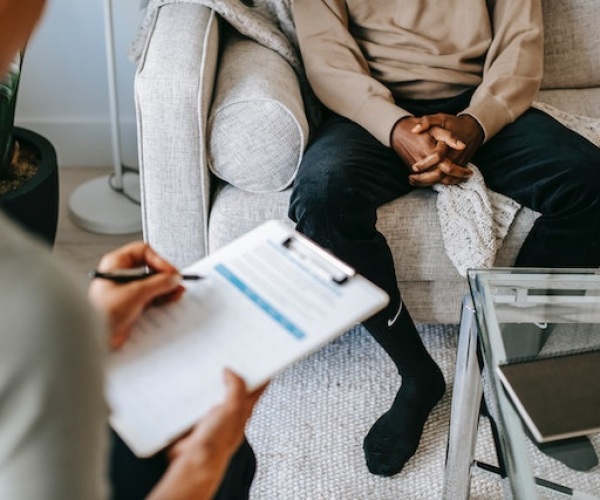Top 5 tips for getting the most from therapy

Attending therapy, especially the first session, can be a daunting experience for many people. This is completely normal, and it is often helpful once you know what to expect as you navigate this journey towards a thriving mental health with your psychologist.
Here are some tips to help you get the most out of therapy:
Know your top goal.
Think of psychologists as a resource you can lean into to move you closer towards your goals in life. Out of all the goals you may have, what is the top goal you would like to work on? For example, skills to manage anxiety or setting some interpersonal boundaries?
Having a goal in therapy allows your psychologist to keep track of progress, and encourage you closer towards what motivates you.
Long term partnership.
Goals are rarely met after a short one or two sessions together. Likewise, successful psychological care often involves a longer-term relationship. During the first session, expect that many questions will be asked ranging from what goes on for you since young, your family of origin, to your current challenges in different areas of your life. This is important because understanding your story and factors that shaped you as a person is necessary when tailoring psychological intervention to meet your needs and your goals.
At the end of the first/second session, you might have a better sense of “fit” between you and your therapist. Should you feel that this is not the right person to help you, you are welcome to discuss it with the psychologist. This allows the psychologist the valuable opportunity to explore the topic further, and provide other options that may meet your needs better.
Commitment.
Commit to value your appointment. In the earlier parts of therapy, a regular fortnightly or monthly appointment will help consolidate learning and contribute to better treatment outcome more than sessions that may be intermittent or highly irregular.
Active participation.
Part of commitment requires active participation on your end. Between sessions, some psychologists may like to give home–based activities (or homework). Commit to doing them as much as you can, as it helps with you be prepared for the next session and be active in your own treatment.
Before you attend each session, have a think about what you may want to discuss with your psychologist. This may be about your reflections or difficulty with the homework from last session, some challenges that might have come up between sessions, or some wins you may have noticed about yourself.
Be willing to be vulnerable.
As you journey with your psychologist in session, you may find some thoughts, topics, or feelings that makes you feel uncomfortable. Vulnerability is hard, but often important in your progress towards your goals. As your trust in your psychologist grows, keep in mind that our goal is to support you and provide you with a judgement free environment to thrive.
If you would like to have a conversation further to improve your mental health and would like to engage with one of our clinicians to support your journey in flourishing, please contact us at Prosper Health Collective for further information on 6381 0071.